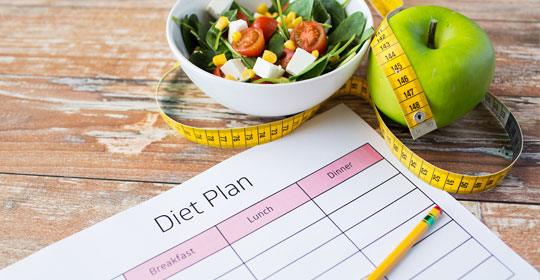
Why Your Diet Isn’t Working? Here Are the Answers
Losing weight is a tough challenge. At certain points, you will feel that you’re doing the right things but then not getting the results you’re expecting. One reason is that you may be hindering your progress due to outdated advice or misguidance.
Common Weight Loss Mistakes People Make
See the following for weight loss mistakes that many fitness seekers are making, so they’re halting their progress.
Relying too much on the weighing scale
It is common to feel as if you’re not losing weight even if you’re faithfully following a diet plan. And what makes it worse for some is they’re relying too much on the numbers they see on the scale when trying to monitor their weight change.
Know that the weighing scale is not an accurate tool to indicate that you are or not losing weight. The reason is that our weight is influenced by other things, such as the remaining food in your body and the fluid fluctuations happening inside it.
Speaking of fluctuation, did you know that your weight could fluctuate up to four pounds in one day – and that is according to how much liquid or food you have consumed. For women, another factor that contributes to fluid retention is hormonal changes the weighing scale is indicating.
So if the numbers on the weighing scale isn’t moving, you may be losing fat mass, but still your body is keeping much water.
Overestimating the number of calories that you’re spending during workouts
Many people think and believe that exercise can speed up their metabolism. While exercising can help you burn more calories, it is not to be the sole factor to help you determine how much calories you’re burning. In fact, it (calories) might be less than what you believe, and this applies to both overweight and normal weight people. For example, a study had it that most people burned only up to 300 calories in one exercise session, but when asked, they overestimated and claimed to have burned 800 calories.
So while exercise is crucial for weight loss, it is not the sole factor that will affect the amount of calories you will burn and that it might not be as effective when burning calories contrary to popular belief.
Not consuming enough protein
Enough protein consumption is one of the most crucial contributors to weight loss. The more muscle you gain the better your body will be in burning calories for energy. Protein can help you lose and manage weight in some ways.
In general, it can help in increasing the feeling of fullness, reducing appetite, increasing metabolic rate, decreasing caloric intake and protecting muscle mass while losing weight. So in order to get the most of your weight loss effort, you should not forget including more protein in your diet.
Not having enough fiber
If you’re not consuming enough of it, you will compromise your weight loss efforts. According to studies, soluble fiber can help in reducing appetite because it can form a gel to hold water. Such gel can move slowly through the digestive tract and keep you feeling full.
All types of fiber are good for weight loss because they can reduce your appetite and calorie intake. By consuming higher fiber in your diet, you can reduce the number of calories your body will absorb from the food you’re eating. It will lead to reduction in overall daily calorie intake. And by following this tip, you can have the potential of absorbing up to 130 calories.
Trying to lose weight, some weight loss seekers, whether intentionally or unintentionally, commit mistakes that ruin their diet and give them poor progress. To prevent the same thing from happening, avoid these mistakes and get more out of your diet efforts today!
Leave a reply →